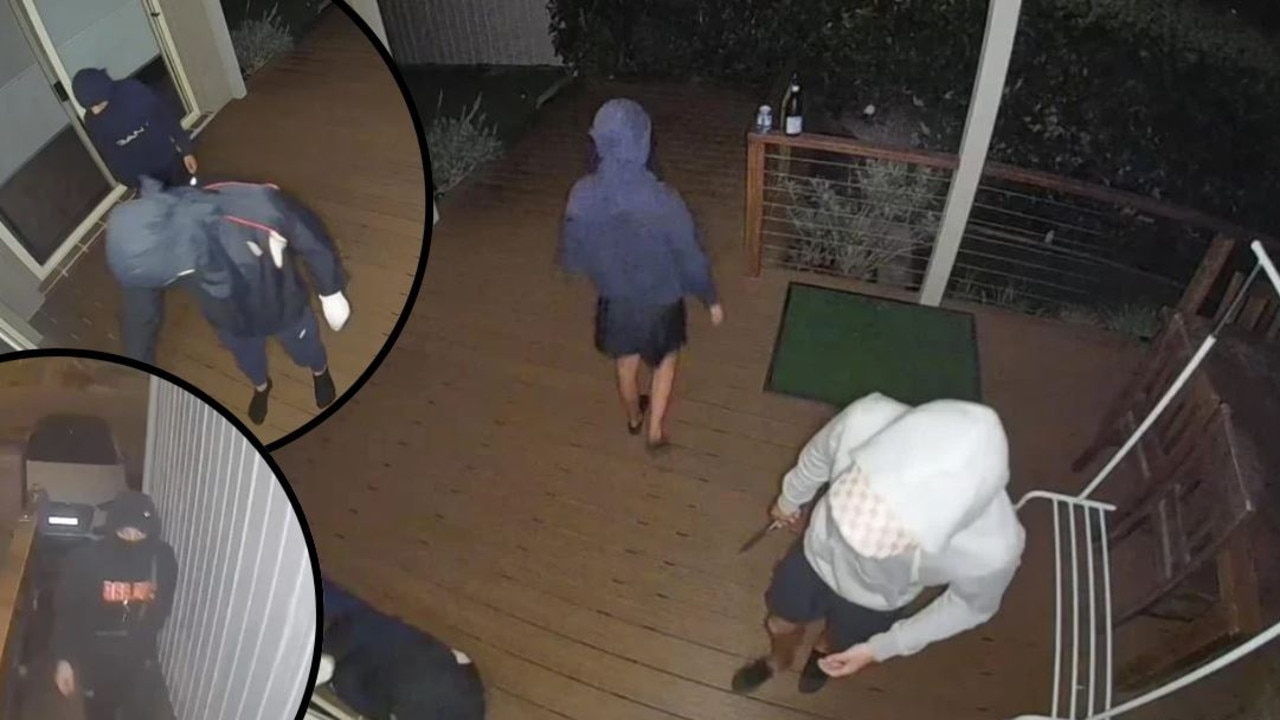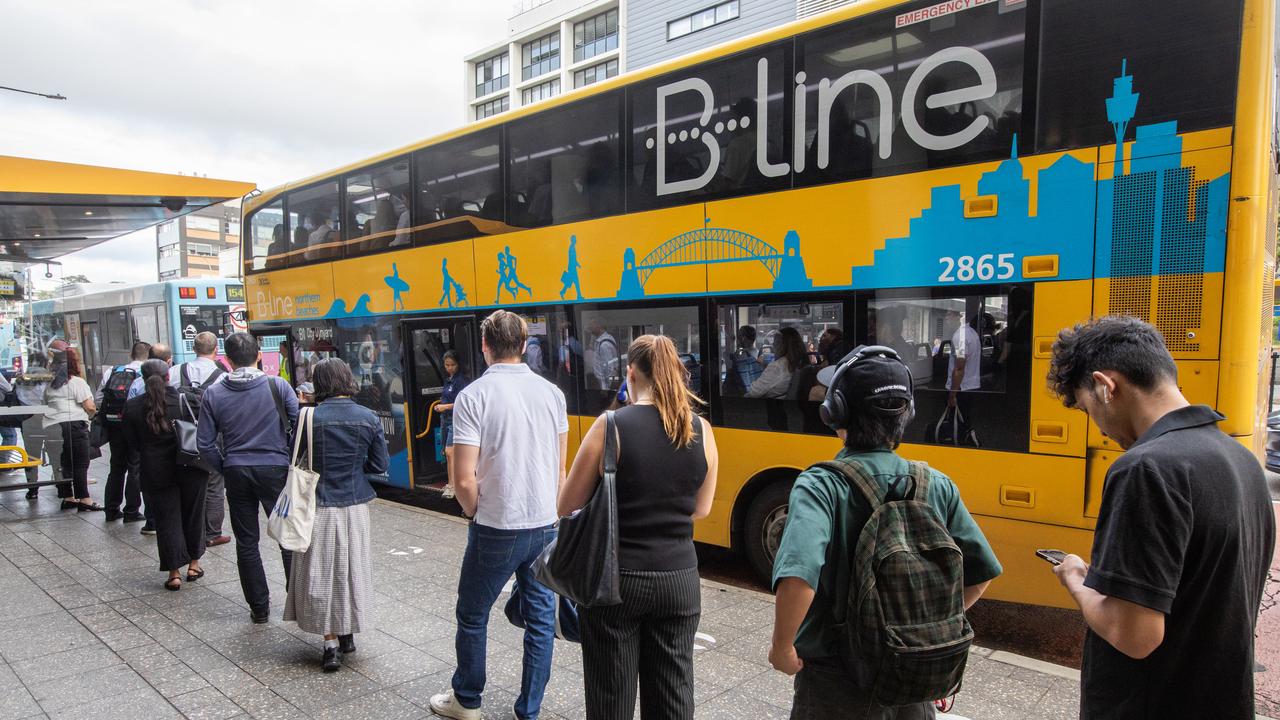MDMA therapy helps Adam Bray process grief of losing son Zach in Hunter Valley bus crash
The father of one of the victims from the Hunter Valley bus crash has spoken about his impossible choice he had to make in the hours after his son died.
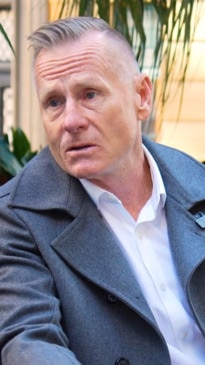
NSW
Don't miss out on the headlines from NSW. Followed categories will be added to My News.
Adam Bray made the impossible choice, yet the only choice he had, to view his son’s remains after he was killed in the Hunter Valley bus crash.
“Other family members didn’t want to see him like that; they wanted to remember Zach as the beautiful human that he was, but I needed answers. I wanted to understand whether he passed away quickly, whether he suffered,” Mr Bray told The Sunday Telegraph.
For the same reason, the devastated dad had Zach’s autopsy report read out to him.
“It ran graphically in my head for months, the graphic brutalisation of my son was very horrendous,” he said as he fought back tears.
“That, in terms of trauma, very deep trauma, those images, that experience, has stayed with me all the way through.”
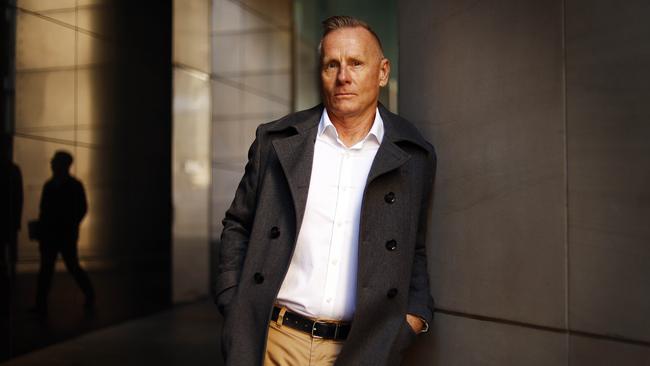
Mr Bray tried to escape the images in his mind, tried to replace them with beauty. The Taj Mahal in India, the Island of the Gods in Bali, the Aegean Sea in Turkey.
“I did a day trip on a small boat and I was swimming out in the beautiful azure Aegean Sea. I have amazing experiences there with Zach, the super yachts and helicopters, all the things we both loved. And here I am swimming in the beauty and I’m crying,” he said.
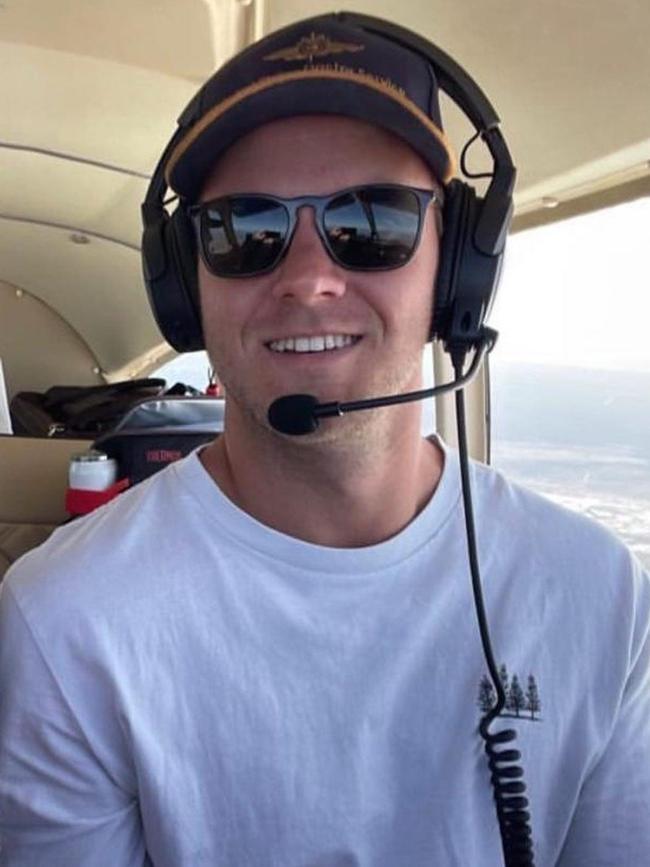
“Here are all these triggers, the things that make you feel close to Zach and they pull you right into the main piece of trauma.”
Mr Bray, who had been busy pushing for bus safety reforms and talking to politicians, even before his 29-year-old son’s funeral, said while he was ticking boxes and achieving great things, he knew it was time to work on himself.
“I was driven by creating reforms, I didn’t want anybody being in my shoes, I didn’t want a coach being driven by a reckless criminal driver to be overturning and killing people the next weekend,” he said.
“It was my laser focus.”
“Friends and family would see interviews where I would have armour on and they would say ‘Well he’s way ahead of me on recovery’. But what they don’t see is when I take the armour off, when I’m on my own I’m so broken it’s unbelievable.”
His brokenness manifested into anger.
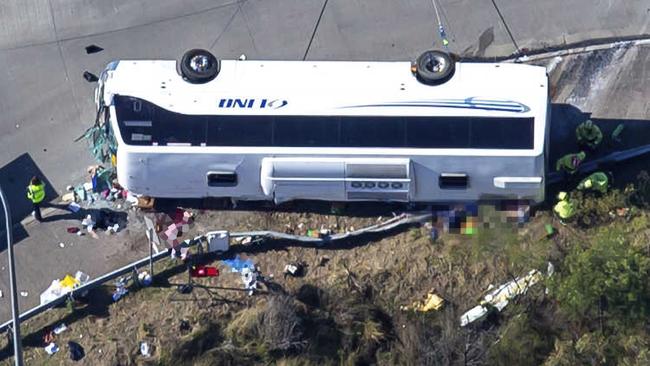
“It’s like having a scary beast that taps you on the shoulder. The words that can come out your mouth, you can’t speak like that to people who love you deeply. I know that, but on the other side this beast on your shoulder is driving you out of control,” he said.
The beast cost Mr Bray his five-year “beautiful, wonderful relationship”.
“I lost two people I loved within the space of five months, so yeah, that was very hard to deal with.”
Mr Bray knew he desperately needed help and with the guidance of professionals underwent EMDR – a form of psychotherapy that is a recommended treatment for post-traumatic stress disorder which involves eye movement desensitisation and reprocessing.
The technique focuses on a specific trauma. Mr Bray said his “10 out of 10”, the trauma he could not even speak about, was the autopsy report.
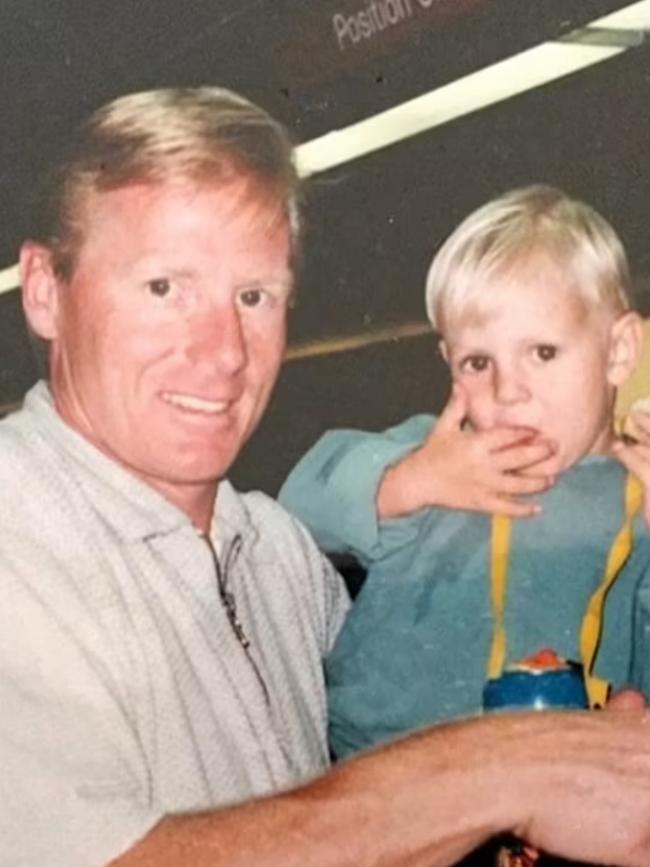
“I got that down to a zero, I was able to accept that (the report) was something that a coroner needs. I was able to process that someone can’t just be killed and you don’t have all the details,” he said.
“It’s very detailed. I could process it as, ‘That’s the purpose of it’. The purpose wasn’t to give me and my family members horrific trauma.”
From EMDR, the next step was for Mr Bray to find a way to unpack the layers of trauma.
He did his research, spoke to highly regarded trauma professionals, and informed himself about the new trial led by Associate Professor Ranil Gunewardene, who is the only TGA Authorised Prescriber approved to deliver MDMA and psilocybin assisted therapy in NSW in a controlled medical setting. Mr Bray decided to take part.
Assoc Prof Gunewardene said combining MDMA with intensive psychotherapy “will help a patient enter an evolved and enlightened state of mind, while the fear centre of the brain, the amygdala, is switched down”.
“This in turn allows the patient, with expert therapeutic support, to more safely explore and reprocess events, feelings, beliefs and relational experiences, that were previously found to be far too distressing, or in some cases, downright terrifying,” he said.
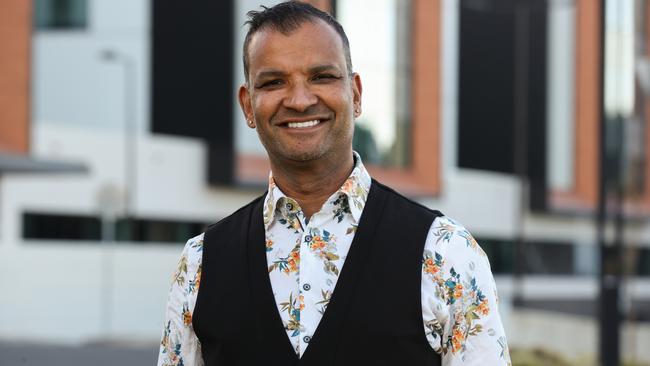
Mr Bray said it was a “gross misconception that MDMA equals ecstasy”.
“It’s not the same dose, it’s not cut with whatever they cut ecstasy with, there is just no comparison.
“The way it’s handled professionally in a hospital environment in a comfortable special room, the administration process to get to this trial is extensive. The two things are nothing the same.
“As soon as you say MDMA people say ‘Oh it’s ecstasy, we are having a party, we are bouncing around to our favourite DJ and within half an hour we are hugging everybody and everything is fantastic’.
“It is not a walk in the park, and on the flip side of the euphoric state you get ‘teary Tuesday’. All those other emotions are coming at you to deal with,” he said.
“With this therapy the emotions that you go through, of course there are tears of course there are question marks, do I keep going deeper do I pull myself out now.
“But there are experts sitting right there monitoring you for the entire seven hours of treatment in a hospital setting.”
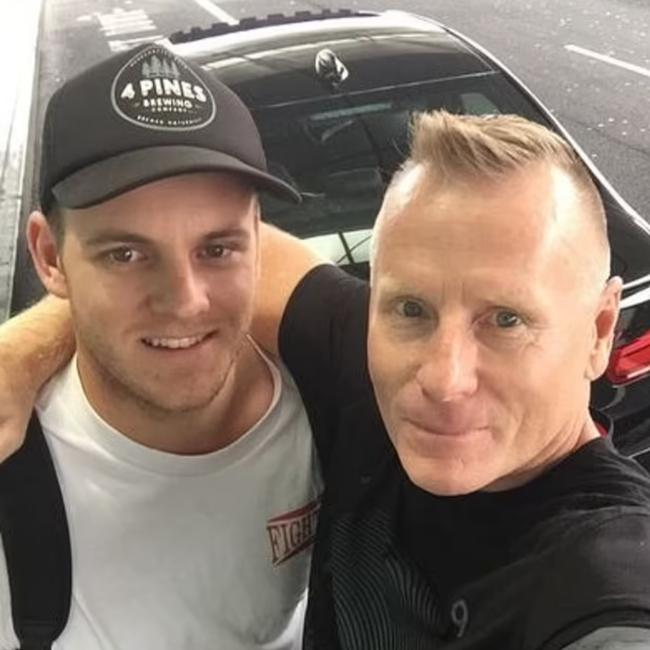
After extensive screening to make sure the therapy would not send him into a deeper depression or intensify his PTSD, Mr Bray had his first session through the Evolution Medicine Enhanced Therapy program.
For seven hours he laid comfortably in a room at Northern Beaches Hospital, listened to soothing music and took his headphones off any time he wanted to share a thought with the team of experts observing.
“I have 20 pages of notes to reference later. You’ve just created a movie scene, then there’s another one but it’s not connected to the first scene so it wouldn’t be a great movie, it would be very confused,” he said.
“Accessing all pieces of trauma that are locked in your mind. I was like ‘Wow I have a lot’. The first thing is accepting you have a lot to deal with. The highest one, for me the autopsy report, just tips you over the edge into knowing you need a lot of help.”
Mr Bray said the state of euphoria he experienced was “totally different” to party recreation mode. It was a “massive, huge relief euphoria, like ‘Wow, I have accessed this much stuff,’ it was a huge release”.
Like any medication comedown, the next few days threw up emotional challenges, but Mr Bray said he was fully briefed on what to expect. There were no surprises and he had the professionals to help him through the challenges and prepare him for the second of three sessions a month later.
Mr Bray stressed the treatment was not for everyone, and a rigorous screening process by a panel of experts made sure only people with severe depression, PTSD and other serious mental health problems were accepted in the program. And even then, more rigorous screening to make sure the treatment would not worsen their symptoms.
“It’s not about one Dr Drug trying to get you psychedelic, it’s not pushed on you, it’s your own decision from very experienced experts in a medical, controlled environment.”
Mr Bray said the cost, somewhere in the vicinity of $20,000, was equivalent to booking into a treated facility for mental health.
“A big part of what I took out of the first round of the evolution experience is that I don’t need my armour,” Mr Bray said.
“And if I do, then I don’t need full body armour, I need a lesser strength metal.
“The removal of the armour is a walk in the park on a sunny day now.”
Do you have a story for The Daily Telegraph? Message 0481 056 618 or email tips@dailytelegraph.com.au
Originally published as MDMA therapy helps Adam Bray process grief of losing son Zach in Hunter Valley bus crash

